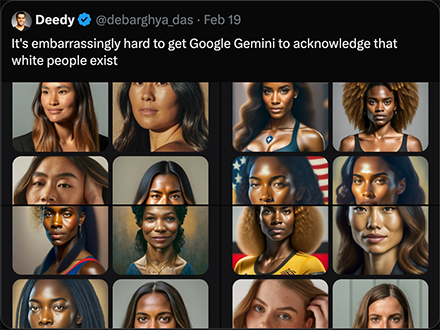 |
||||||||||||
|
||||||||||||
| More Layoffs, a Sad Goodbye, and a New Model for Some Media |

Image sourced from Shutterstock
|
| Media layoffs continued this past week; for many of us, it means a sad goodbye. First, BuzzFeed announced plans to lay off 16% of its workforce and sell off Complex Networks. Less than three years ago, BuzzFeed paid $294m for Complex, but the marriage didn’t last long. The buyer, Ntwrk, got quite the deal, paying just $108 million. Meanwhile, Vice is pulling the plug on Vice.com and announced it would lay off “several hundred” staffers as part of its major restructuring. These are sad events for those of us who’ve been in the industry since the dawn of New Media. Vice and Complex were breakout digital media businesses, offering curated content to younger consumers and breaking the rules in refreshing ways. While both announcements cite familiar publisher headwinds — declining ad revenue and rising business costs — we may also be witnessing a bigger cultural shift. Like their elders, New Media feels as if they’re losing ground to the newer more personal platforms of content creators and influencers who resonate with Gen Z. Take Ntwrk. While technically an e-commerce site, in reality, it’s so much more. The site sells a bunch of merchandise that appeals to Gen Z; much of it collaborates with trendy creators. Visitors can tune into daily drops and shop sneakers, skateboards, fashion, and more that are live-streamed. Its entertainment and shopping merged into one experience. Social selling through video took off during the pandemic, thanks in part to platforms ShopShops that are purpose-built for influencer selling, and the Complex brands have leaned into shopping (as do other streaming companies, like Netflix Shop). Its brand, Complex, gets about 7 million monthly visitors from an audience likely to have a strong interest in Ntwrk’s products. Publishers like The New York Times, The Economist, Condé Nast, HarperCollins, Penguin UK, Los Angeles Times, and Mindbodygreen have successfully incorporated direct-to-consumer (DTC) e-commerce models into their businesses. BuzzFeed also offers e-commerce, but perhaps the natural synergy between the Complex and Ntwrk audiences will be enough to sustain the site. In the meantime, we will miss Vice.com. – SS |
| FuboTV Files Antitrust Lawsuit Against Walt Disney, Fox and Warner Bros. |
Antitrust season is upon us again, but this time, FuboTV has Walt Disney Company, FOX Corp., and Warner Bros. Discovery, Inc. in their legal crosshairs. FuboTV Inc. has taken legal action against The Walt Disney Company, FOX Corp., Warner Bros. Discovery, Inc., and their affiliates, accusing them of antitrust violations. Fubo alleges that the defendants have hindered fair competition, leading to inflated consumer prices and significant harm to FuboTV. In the complaint, Fubo states that "For decades, the defendants have leveraged their iron grip on sports content to extract billions of dollars in supra-competitive profits by engaging in practices causing consumers to pay more for highly popular sports content and resulting in significant damages to both Fubo and its customers." According to David Gandler, Co-founder and CEO of Fubo, the defendants' joint venture to exclusively distribute a specialized live sports package is an attempt to create insurmountable barriers for new competitors. He emphasizes that this move appropriates Fubo's playbook. Fubo seeks fair treatment and competitive pricing for the benefit of consumers, urging action to ensure equal terms and conditions. As the streaming landscape becomes oversaturated, we will continue to see growing pains like this. Of course, creating new walled gardens is never good for the ecosystem, but streaming companies must figure out the balance of consumer trust and revenue. – AB |
| HouseFresh to Google: Stop Promoting Fake Reviews |
| Chances are you've never heard of HouseFresh. According to their LinkedIn page, “they are a review site with a mission to help consumers avoid air quality products that don't live up to the marketing hype." The site comprises people who are passionate about air quality, which is why they work hard to maintain their independence, even spending their own money on the purifiers and dehumidifiers they review. This is precisely why HouseFresh vents its frustration at Google, which, they say, is polluting them with fake review sites and driving independent ones like theirs out of business. HouseFresh has spent a fair amount of time analyzing the product reviews Google serves up in search results. More often than not, the same pubs get higher rankings than independent review sites like theirs. More concerning, HouseFresh has found, "for the most part, these publishers recommend products without firsthand testing and simply paraphrase marketing materials and Amazon listing information." The post notes that users who search reviews of a specific item say a GE Appliances 50-Pint Dehumidifier With Pump, are more likely to find a legitimate review by someone who has tested the product. As the post points out, most people begin their purchase journey by searching for the "best [insert product category], but HouseFresh insinuates that they are nothing more than repackaged Amazon reviews. As a result, they say Google is killing independent sites like theirs. If you're the AdOps team or the CRO for an independent site and are wondering why your traffic is down, HelloFresh may provide answers. – SS |
| Nielsen Report Reveals YouTube TV Dominates Streaming for 12th Consecutive Month |
| Nielsen released its January report on TV and streaming viewership, revealing YouTube as the leading streaming service in the U.S., capturing 8.6% of TV screen time, while Netflix claimed 7.9%. This marks YouTube TV's 12th consecutive month in the top spot. In a blog post, the Google-owned platform celebrated this feat, announcing a daily average of over 1 billion hours of YouTube content watched on TV. This suggests a preference for user-generated videos among U.S. consumers over traditional TV shows, especially among 61% of Gen Z who favor such content. While YouTube dominates in the living room, TikTok maintains supremacy on mobile devices, with recent moves like testing 30-minute video uploads potentially encroaching on YouTube's territory. The future of streaming is still up in the air. Some think SVOD is dead and AVOD is on the rise. But as the Neilsen report suggests, user-generated content on TV and mobile are steadily growing. We have to keep our eyes peeled as the CTV and streaming ecosystems continue to evolve. – AB |
| @{optoutfooterhtml}@ |










